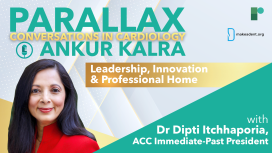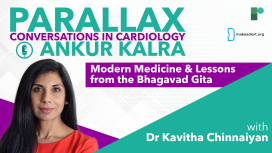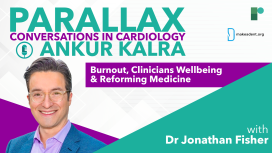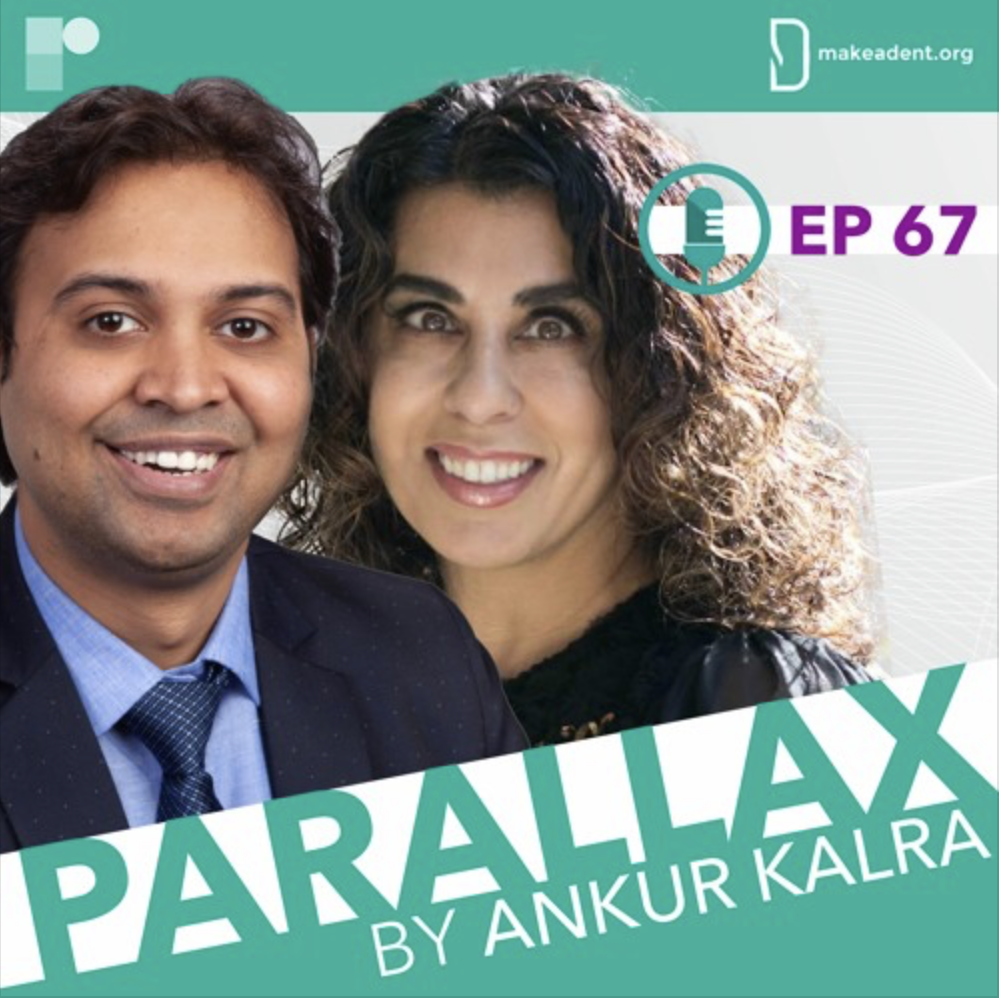
“There is a significant disparity in the inclusion of women on all national guideline committees, in addition to serving as a chair of cardiology guidelines. Further advocacy is required to promote equity, diversity, and inclusion in our cardiology guidelines globally.”
Rai D, et al. JAHA. 22
Why are we talking about inclusion, diversity, and equity? Recent years have seen many studies on the inequalities in representation of women in cardiology and yet the needle has not been moved as much as we hoped for. What does the data on the authorship of the guidelines tell us and what can be done to balance the scale?
Dr Ankur Kalra’s guests this week are Dr Martha Gulati, internationally recognized cardiologist specializing in Women and Heart Disease, Heart Disease Prevention and Dr Devesh Rai, first year cardiology fellow at Rochester General Hospital.
In this insightful and action-oriented episode Dr Gulati, chair of the recent 2021 AHA/ACC/ASE/CHEST/SAEM/SCCT/SCMR Guideline for the Evaluation and Diagnosis of Chest Pain, talks about the guideline development process and the factors that can dictate the questions of representations and the integration of the latest findings. Next, Dr Rai shares insights from a recent study that compared gender differences in the authorship of the US, Canadian, and European Cardiology Guidelines From 2006 to 2020. Dr Kalra invites Dr Gulati and Dr Rai to share their take on how progress can be achieved through advocacy and what are the facts we can build on.
Read the full paper here: www.ahajournals.org/doi/epub/10.116…JAHA.121.024249
Questions and comments can be sent to “podcast@radciffe-group.com” and may be answered by Ankur in the next episode. Guests, @DrMarthaGulati & @DeveshRaiMD hosted by@AnkurKalraMD. Produced by @RadcliffeCARDIO.
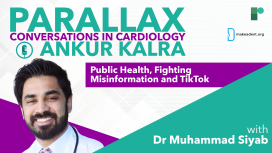



What is the Global Cardiology University project? How does Dr Anavekar encourage trainees to re-examine their role in patient care? What is his advice to our listeners?

As Dr Kalra asks Dr Rao about the ways in which early career faculty members can get involved with the organization at a state level. Dr Rao shares his insider tips and highlights key events where individuals can further their participation.
How can you get involved with your local ACC chapter? How can you improve your leadership skills? What is Dr Rao’s advice for our listeners?

He explains how the complexity of nutrition and the compounds generated by the gut microbiome can impact our health. We learn more about three compounds produced by our gut microbiome that have a strong connection with heart disease.
Through this conversation, Dr Vuyisich invites us to reframe our approach to nutrition and prevention as a question of food education and data-driven science.


This episode features a vascular neurologist and an interventional cardiologist who will discuss the relationship between their two fields of medicine.

In this rich and insightful discussion, Dr Kittleson talks about the origins of famous #kittlesonrules, a collection of tips for doctors shared on Twitter, and her thoughts on mentorship. We learn more about Mastering the Art of Patient Care. Dr Kalra and Dr Kittleson discuss strategies for managing difficult situations in patient care.

What do you need to know about hospital investigations? What is the difference between OPPE and FPPE? How can you get educated on hospital bylaws and processes?

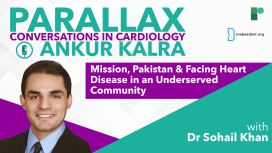
Dr Khan talks about education in the US and his decision to move back to Pakistan. Ankur asks Sohail about his new professional home: NICVD, a free clinic providing primary heartcare for Pakistanis. They discuss some of the innovations Dr Khan works on to improve patient care that utilise simple but effective interventions. We learn more about free screening clinics and about Dr Khan’s work on the largest ever study in Pakistan on association of Lpa and CV disease in South Asians.
